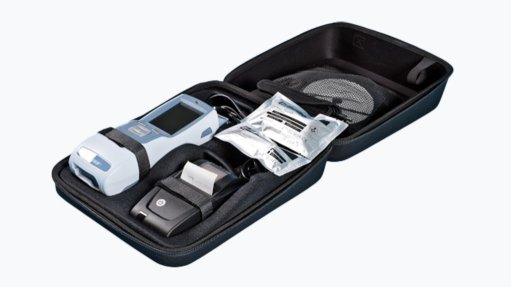Success abounds in paper recycling and recovery
Despite South Africa having less easily accessible recycling initiatives in place than in developed countries, such as recycling bins in every park or street, or systematic waste recovery at household level, the Paper Recycling Association of South Africa (Prasa) says the country’s paper recycling recovery rate of 66% is on par with these countries.
“The value of diverting more than 1.2-million tons of paper from landfill yearly to the economy of South Africa in terms of job creation and preservation of the environment cannot be overemphasised,” posits Prasa operations director Ursula Henneberry.
She cites the delivery of several entrepreneurship training courses, funded by the Fibre Processing and Manufacturing Sector Education and Training Authority, as a paper recycling sector success story. The countrywide courses aim to create small, medium-sized and microenterprises and empower entrepreneurs and unemployed youth in the waste management and recycling sector.
The training targets people through youth centres, municipalities, faith groups and local industry associations. The four-day workshop adopts a practical approach on a variety of key business basics, including those of entrepreneurship, communication, elementary finance, research and planning.
“We are so often impressed by the ‘can-do’ attitude of our trainees. Giving them a platform for learning and earning enables them to translate their ideas into income-generating action,” extols Henneberry.
She notes that many participants have been able to “move up the ladder”, for example, from hauling a trolley to driving a truck. She says this accomplishment on their behalf has further advantages through their paying-it-forward attitude, which results in their employing others.
Henneberry indicates that paper recovery and recycling is primarily championed by industry, with Prasa members involved in paper collection, sorting and processing. Members operate a vast network of collection programmes and buy-back centres, which help facilitate the trade of recovered paper. Moreover, these facilities provide different options of walk-in services, daily trade or formal procurement arrangements.
Henneberry says successful paper recovery in South Africa can largely be attributed to the informal collector sector, describing informal waste collectors as the “unsung heroes” of the recycling industry, despite their being perceived as a “nuisance”, hauling their overloaded trolleys on busy roads.
She believes this view is unwarranted because they contribute significantly to the diversion of recyclable materials from landfills. Collectors recover recyclables and sell them to buy-back centres, enabling them to earn a living. “The average waste collector can start without a cent in his or her pocket and end the day with enough to buy food.”
Solutions to Recycling Challenges
Henneberry is particularly pleased with the successes and progress made, as these come on the back of challenges posed by a “complex” waste management sector.
One challenge is contaminated recycling materials.
It is critical that separation at source be the norm to facilitate the recovery of uncontaminated and good-quality recyclable materials, she adds. Henneberry explains that wet waste – including food waste, cigarette butts and soiled takeaway containers – incorrectly placed inside a recycling bin contaminates the paper. It also reduces the paper or board’s value, as it also starts to degrade once it becomes wet.
Separation at source can be furthered by retailers and takeaway outlets offering accessible recycling stations, as this two-bin system will serve to separate clean and dry paper packaging from soiled paper products and other general waste.
Households are also obligated to play a part, which Henneberry postulates can be encouraged through the provision of separate bags for different recycling materials. In this instance, partnerships with municipalities play a vital role.
Another challenge is preconsumer information, pertaining to a need to clearly define packaging for consumers to indicate if it can be recycled, which is often not properly done. To mitigate this challenge, Henneberry says Prasa has produced a set of ‘recycle this’ graphics which highlights that a document, communication material or paper-based packaging is recyclable. Manufacturers or companies are able to include these graphics on their packaging.
Article Enquiry
Email Article
Save Article
Feedback
To advertise email advertising@creamermedia.co.za or click here
Announcements
What's On
Subscribe to improve your user experience...
Option 1 (equivalent of R125 a month):
Receive a weekly copy of Creamer Media's Engineering News & Mining Weekly magazine
(print copy for those in South Africa and e-magazine for those outside of South Africa)
Receive daily email newsletters
Access to full search results
Access archive of magazine back copies
Access to Projects in Progress
Access to ONE Research Report of your choice in PDF format
Option 2 (equivalent of R375 a month):
All benefits from Option 1
PLUS
Access to Creamer Media's Research Channel Africa for ALL Research Reports, in PDF format, on various industrial and mining sectors
including Electricity; Water; Energy Transition; Hydrogen; Roads, Rail and Ports; Coal; Gold; Platinum; Battery Metals; etc.
Already a subscriber?
Forgotten your password?
Receive weekly copy of Creamer Media's Engineering News & Mining Weekly magazine (print copy for those in South Africa and e-magazine for those outside of South Africa)
➕
Recieve daily email newsletters
➕
Access to full search results
➕
Access archive of magazine back copies
➕
Access to Projects in Progress
➕
Access to ONE Research Report of your choice in PDF format
RESEARCH CHANNEL AFRICA
R4500 (equivalent of R375 a month)
SUBSCRIBEAll benefits from Option 1
➕
Access to Creamer Media's Research Channel Africa for ALL Research Reports on various industrial and mining sectors, in PDF format, including on:
Electricity
➕
Water
➕
Energy Transition
➕
Hydrogen
➕
Roads, Rail and Ports
➕
Coal
➕
Gold
➕
Platinum
➕
Battery Metals
➕
etc.
Receive all benefits from Option 1 or Option 2 delivered to numerous people at your company
➕
Multiple User names and Passwords for simultaneous log-ins
➕
Intranet integration access to all in your organisation

















